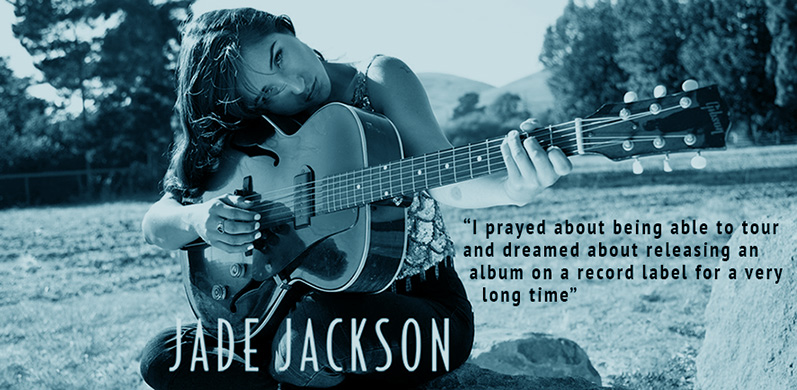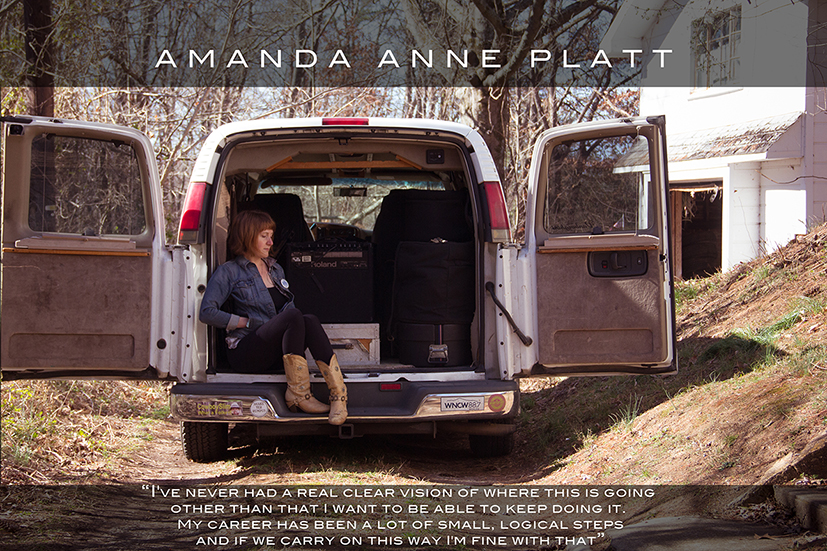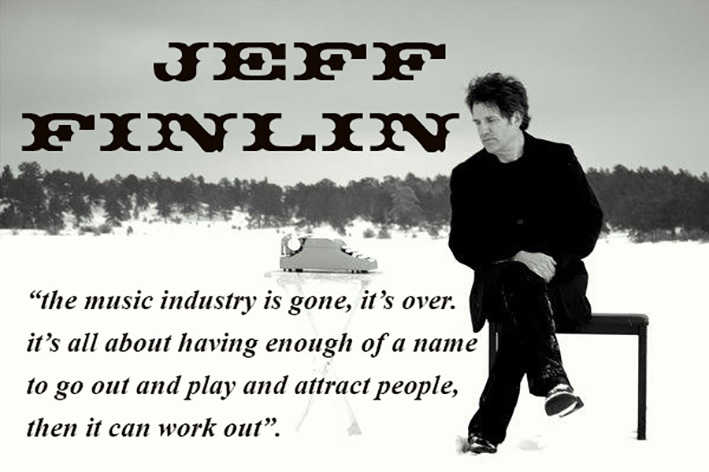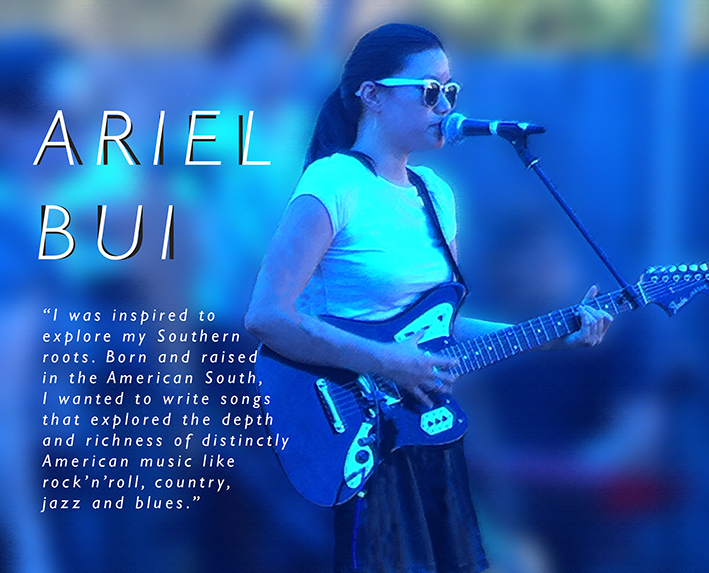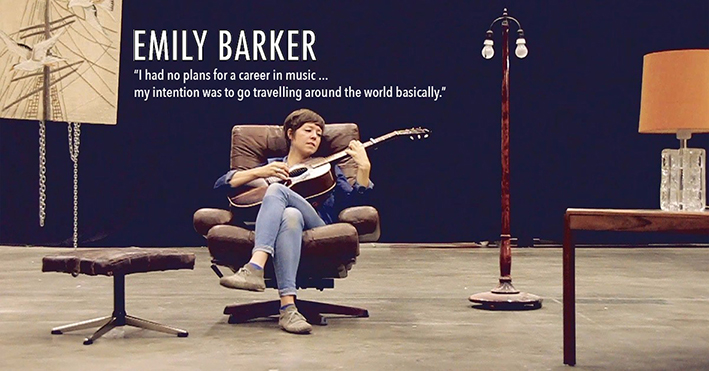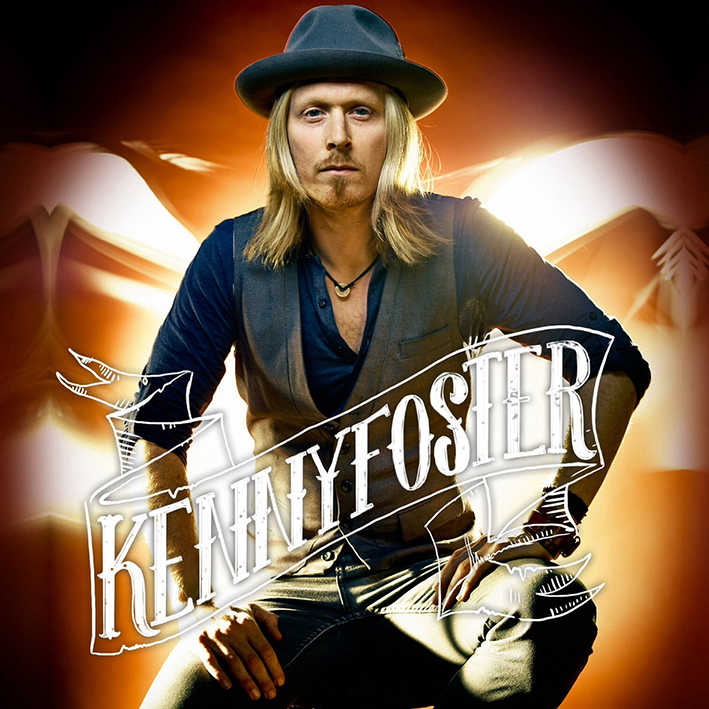
Kenny Foster is a singer songwriter who relocated from Joplin Missouri to Nashville seeking fame and fortune. His tale is similar to many who land in The Music City and experience the trials and tribulations of making their mark in a sometimes impossibly competitive market where industry politics often dominate. What separates Foster from many of his peers is his capacity to articulate the experience in a credible, practical and pragmatic manner. Foster released his debut album Deep Cuts earlier this year and spoke with Lonesome Highway about his career before embarking on a short tour of Ireland and The U.K.
You often refer to the difficulties you encountered moving to Nashville from Missouri and establishing a foothold in the competitive music industry in the Music City. Do you now consider Nashville home and intend staying put?
Nashville has become my second home. It’s a love/hate relationship sometimes, and I think you’d hear most folks in this highly competitive field say the same thing at different points. When it’s good, it’s very, very good. When it’s bad, it’s almost unbearable. But my wife and I have developed a great community of friends in and out of the creative industries, and we can find a great deal of balance here. Access to both the lives we led before making the jump to pursue a seemingly impossible dream, and access to the best, most driven, most talented creatives in the world. It really is a remarkable city.
Country Music radio stations dictate exactly what is to be currently labelled as ‘country’ music, the majority of which does not in any way reflect the roots of traditional country music. How does an artist like yourself deal with that and is it possible to stick to your core musical beliefs yet manage to survive?
I appreciate this question, and honestly I really don’t know where this whole thing will end up. But the fact that you asked me in light of what your readers want, there must be a number of country music fans that see the industry in the same way you’ve just described. That says to me that there is a desire for the kind of music that myself and my collaborators/friends are trying to make day-in and day-out. Maybe the desire for a return to the roots of traditional country music will become so great that the industry will follow suit. Maybe it won’t. But regardless, I’ve done a great amount of chasing, and striving, and fitting in before this recent record, and after a good amount of shoul searching (and exhaustion, really) it feels good to know exactly who I am as an artist. I may evolve sonically, but my messaging will all come from the same place: the very heart of me. I’ve grown weary of throwing punches or trying to prove anything to an ever-evolving landscape. Ask anyone playing in it, and they couldn’t tell you what’s gonna break next month. They just keep throwing stuff against a wall and seein’ what sticks.
It’s more of a long-game mentality for me and my kind, and as such we have to do a great number of things to survive. But once equilibrium sets in, and you’re living a life that makes you content, then the desire for bigger, better, faster, more wanes a significant amount. If it never pans out in a monstrous way with the support of radio and the big machines, that’s okay. If it does become the next big thing, that will come with its own set of challenges and frustrations, even amidst the growth and excitement. Either way, it sounds like great fodder for some remarkable songs to me. And I imagine this is all panning out in the way it was always meant to.
Have your studies in philosophy been an advantage in dealing with expectation, anticipation and the inevitable rejection by times that goes with the territory?
[Laughs] Well it has certainly helped me analyze the depths of my despair. [chuckles] I kid. Pretty sure I already knew how to think, but philosophy taught me how to learn. I had to face ideas and opinions that were sometimes counter to my own, some even came from a completely different place than my own. The mental gymnastics certainly gave me the constitution for accepting and processing all sorts of adversity and the amalgam of different experiences I was likely to face in my pursuit of the ever-elusive ‘life of art.’ I learned how to discern good arguments from bad ones, I learned how to appropriate sound thinking to help bolster my own thoughts/beliefs, and I learned to be comfortable with having my previously held ideas be proven wrong. These are rare qualities in this tumultuous time. I’m grateful for philosophy’s role in helping me shape a more sound world view from which to create.
There is quite a market for Country and Americana in Europe with many artists from The States targeting Europe rather than trying to cover vast areas of their home country. Is this also your intention?
I love that you assume I have any intention that goes beyond wanting to share my music with thoughtful. respectful crowds. I believe in the power of creating a moment. Whether that’s for 10 people or 10,000. Each show is different given the people, the venue, the context. Ultimately, I will go where I am wanted, and the response to Deep Cuts in the UK and Ireland has been such that I wanted to come be a part of the conversation. As a sound financial plan or a precursor to swift and complete world domination, I can safely say we’ve not thought that far ahead. I love this part of the world, and knowing that a place I already liked to spend time wanted to hear a few tunes come out of my mouth, well that just tickled me pink and so we decided to come over. Simple as that.
You’ve been invited to perform on the Bob Harris Under The Apple Tree sessions which is great exposure for you. How did that materialise?
After my Rolling Stone write up, we were approached by a company called Limetree Music out of the UK and we talked to them about our plans to tour in your neck of the woods. It’s my understanding that they passed along my music to the folks at Under the Apple Tree, and the response was such that we were invited to take part in the great legacy that they have created there. I’m very grateful for their acceptance of me into their fold, and look forward to meeting “Whispering” Bob in person very soon!
Your dates in Ireland and the UK coincide with the release of your album Deep Cuts. Have you been touring the album at home yet?
Nope. You go to where your people are, and the response from Ireland and the UK has been so overwhelming that it made us take notice. In gearing up for a fall tour, the stars aligned for us to do a leg overseas, and as an independent, the exhaustive nature of stringing together dates became so much easier to muster. Especially to visit a place that has been so welcoming and so intentional with us historically. I look forward to it immensely.
The album features quite a number of co-writes with some serious big hitters such as Marti Dodson and Casey Wood. Are you more comfortable co-writing and do you consider that working with others makes the process simpler or more challenging?
Co-writing is just a different thing. I think it takes a great amount of trust and mutual respect to get a great tune. I spend so much time co-writing because I’m not always writing for myself. The sheer number of songs that I’ve been pumping out (200 a year over the past 3 years) lends itself to finding comfort in letting the wind take you where it wants to go. That’s easier when you’ve got a supremely talented friend in tow. Sometimes you hit on something that can be recognized as a great song, but it’s so personal that it takes the right voice with the right conviction to pull it off. Turns out a few of those writes for other people were really writes for me to make this record. Simple? Challenging? All in a days work. Depends on the day, the song, the weather, the mood. When a song hits, it just hits.
The song ‘Made’ on the album is particularly powerful lyrically. Is it autobiographical?
The heart and voice of that tune is absolutely, through and through, me. It’s actually the song that I built the whole rest of the record around. The person I was, in the place that I was when I wrote that song, was just ‘right.’ While I took some artistic liberties with the specifics of the scenario, it became so real to me; so visceral. I wanted to make sure that the rest of the record would fall in line with the sentiment that rocked me to the core. That’s what I wanted to capture, and I’m so glad that you felt it in a similar way.
When writing songs do you always consider that the end product will be performed by yourself or is this a factor in your writing process?
Again, it depends on the day. There are moments of inspiration that are fully and wholly me. But sometimes when you hit upon something that’s deep, and true, and almost ancient in its messaging, then it becomes universal with anyone else who is in that place. If another artist were to want to cut it, then by all means. They will give it a life that I wouldn’t be able to. There are very few songs that I write that I say ‘Nope, that one is mine.’ In my mind, a great song is a great song, and I couldn’t possibly record all of the great songs that I get to be a part of. I try to find a voice that is true. If that ends up being mine, then I’m grateful for it. I’m just here to help the thing come into existence, and grateful for the work.
The album cover is markedly striking and graphic. Did the decision to use the image require much soul searching rather than select the all too often bland headshot on the cover?
I’d had the idea for capturing the photo concept ever since I’d recorded a song called Bravery back in 2011. The lyric was ‘Nothing about me says I think I’m good enough. I know I’ve got a heart with a leak, I try to fill it up.’ Up to that point I don’t think I’d written anything so vulnerable in my life, and it turns out it was just a precursor of things to come. So when this collection of songs was being put together, this image kept coming up in my mind as verily important. The truth is, I had no idea how to marry the two: these heartfelt, authentically simple songs and this terrible, gruesome, bloody image. It wasn’t until I was at dinner with a dear friend and the producer/director of my recent music video for Stand, Kenny Jackson (anthempictures.tv), and we were talking about the project and the history, and what I was trying to do with it and he was the one that said: ‘Why don’t you just call it Deep Cuts?’ Like a fricking bolt of lightning. Of course! It was the tie that bound all of it together in this beautiful package. It catches you unaware in a shocking way that hopefully compels you to look inside and discover something equally as shocking, but maybe not what you were expecting. I LOVED it. It was game-on from that point forward. I phoned my friend Rorshak (Rorshak.com) who is quite possibly the most underrated photographer I’ve ever seen. We have commiserated over many a beer about our particular plights. [laughs] Over one of these beers, the plan was set in motion behind his epically creative vision for capturing the image, and he executed the project like nothing I’ve ever seen before. With him behind the camera, it was never going to be a bland headshot. I love, love, love collaborating with him.
There’s a great little blog over on my website if you’re interested in seeing behind the scenes of all that. But it all turned out exactly as I’d hoped. Better even.
Grammy award winner Mitch Dane covers and embraces every conceivable musical genre from bluegrass to hip hop. What inspired you to select him to produce the album?
Mitch is a beautiful soul. His story is remarkable. His aim is true. He got it. We have been friends for over a decade, and when I first moved to town, the idea of doing a record with him “one day” seemed so very far out of reach. We had even made plans to do an EP as long ago as 2010, but some extraneous circumstances caused that to fall through. I’m ever so glad, because 5 or 6 songs wouldn’t have been enough time to spend with him. As it worked out, I kept developing and he kept making great records. The stars aligned. Our calendars matched. We were off like a rocket. We took our time, and moved through methodically. His exact words were: “It’s going to be great. I just have to make sure I don’t mess it up.” If that doesn’t give you the confidence you need as an artist to give it your all, I’m not sure what will. He was very careful. He’s an intentional human being, and anyone would be so lucky to get the chance to allow their work to pass through his gifted hands.
There is a noticeable crossover in recent years between artists that would have previously being considered AMA suited rather than CMA. I’m thinking Chris Stapleton, Jason Isbell, Margo Price and Kacey Musgraves who typically have appealed to both markets. Where would you place yourself in terms of your fanbase and market?
Again, while I’ve been banging around in music for quite a while, this record was really the first of my projects to receive the attention and acclaim that it has. We’re still finding our market. I obviously resonate so deeply with not only the artists you’ve just mentioned and their work, but their decision to walk a different path. I didn’t set out to make a ‘crossover’ record, so to speak. It just turns out that music lovers who don’t typically listen to country music have taken quite a liking to it. There was no master plan [laughs] I just finally made the record I wanted, in the way I wanted to make it, and I didn’t think about markets or demographics, or action items. To me this effort was about making the project. Period. Any life that this record has, I’m just along for the ride. I’m so grateful it exists in the world now, and I’m so grateful people are resonating with it. If they’re AMA, CMA, MTV, BET, or OPP I would just call fans of my music ‘friends’, no matter their walk of life.
Wearing your philosophers hat where do you expect to be career wise in ten years down the road?
My philosopher’s hat would tell me that the only true wisdom is knowing that I know nothing. I don’t make conjecture any more. I will follow my heart each and every day and let the rest work itself out. Worry not for tomorrow, for today has enough trouble of its own.
Interview by Declan Culliton



